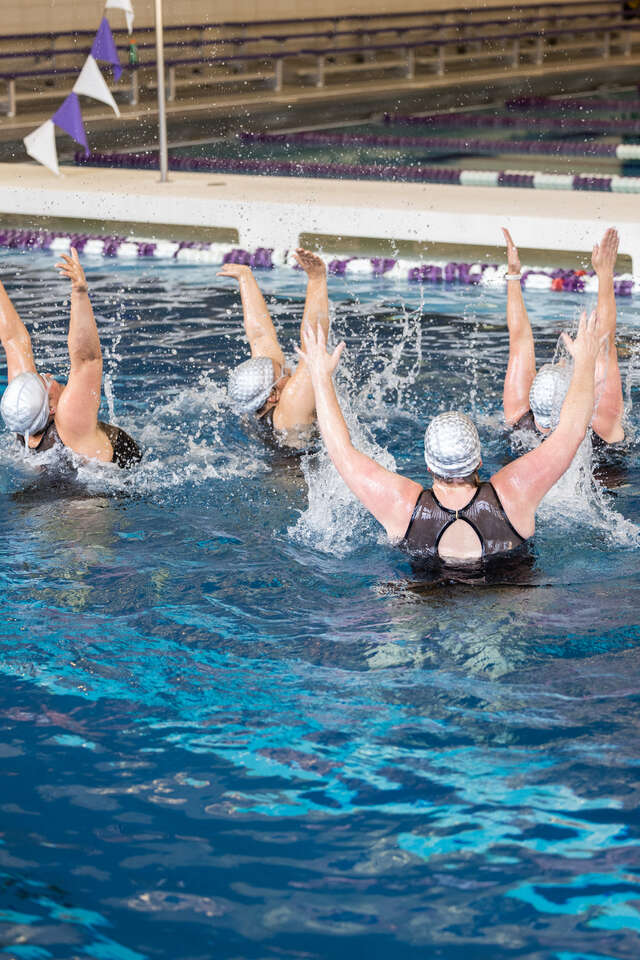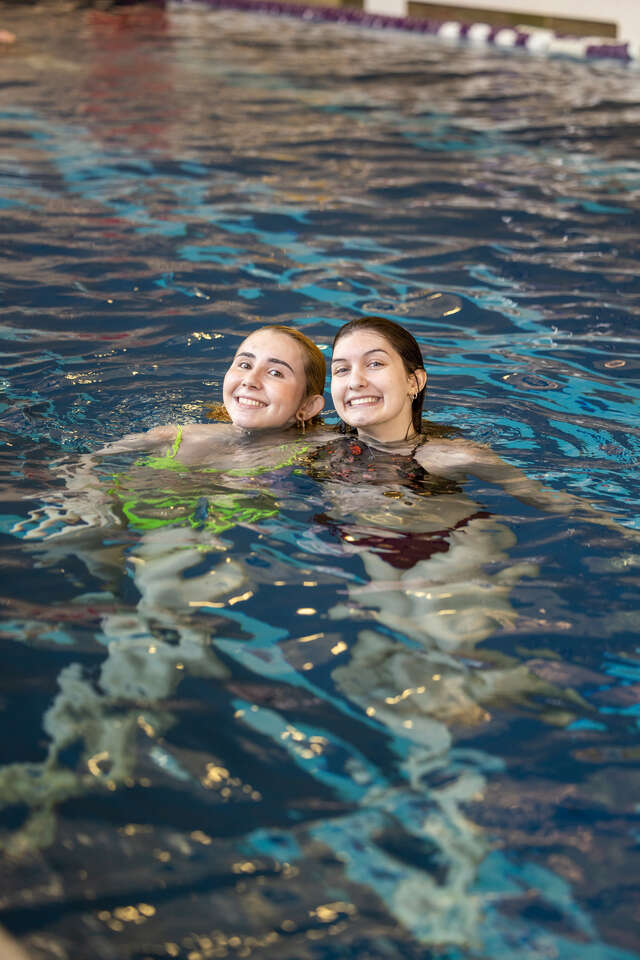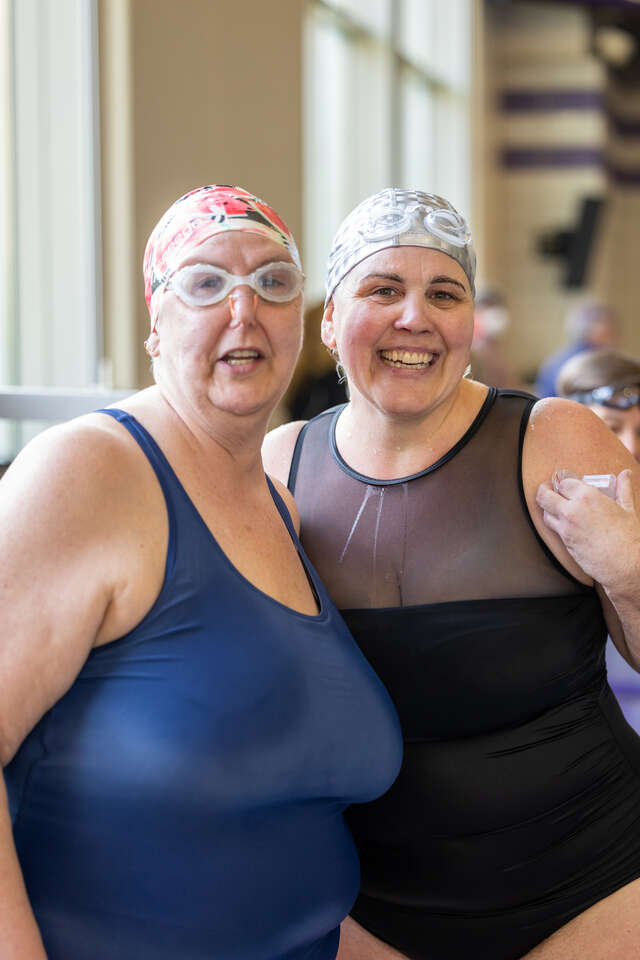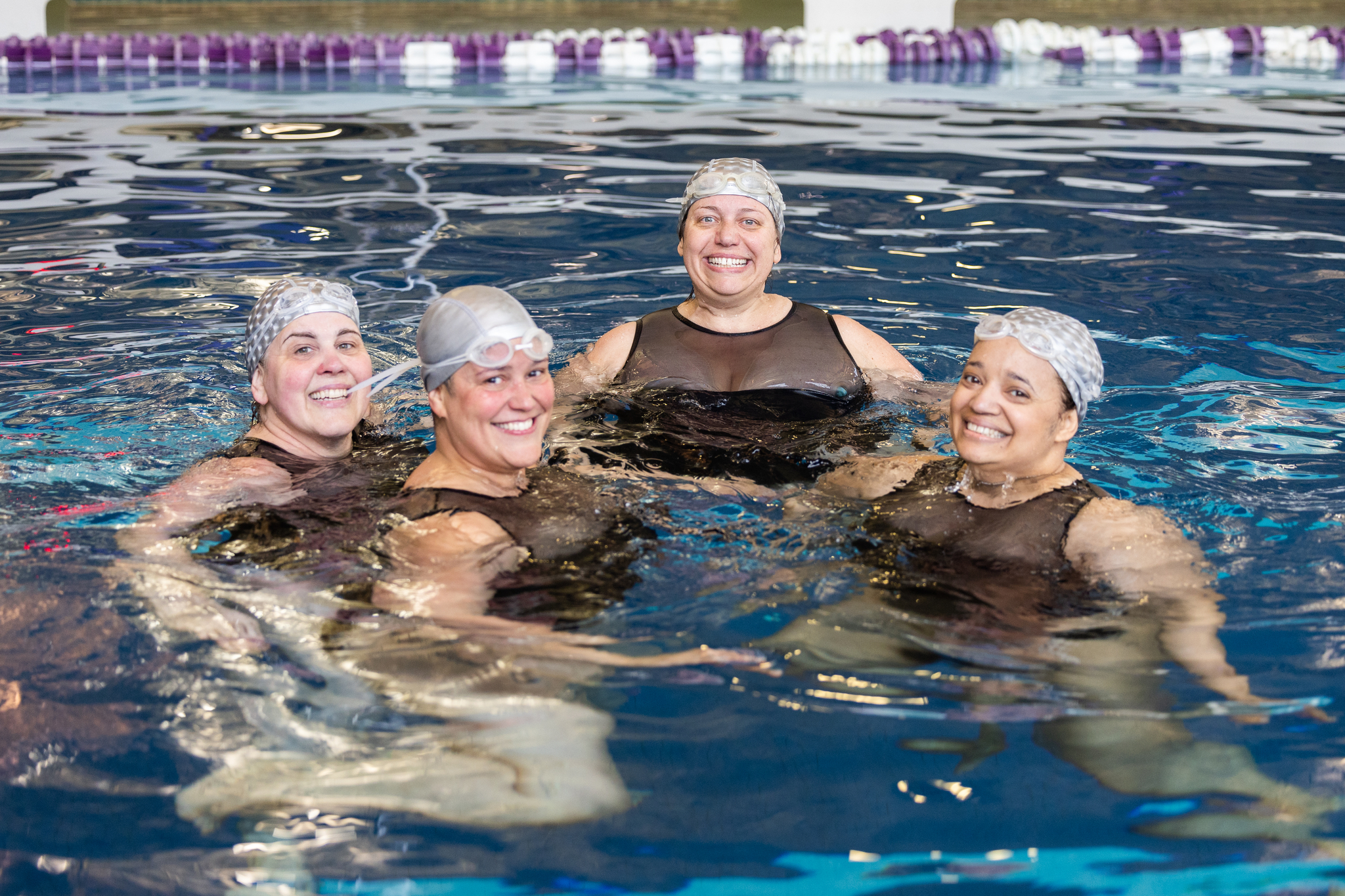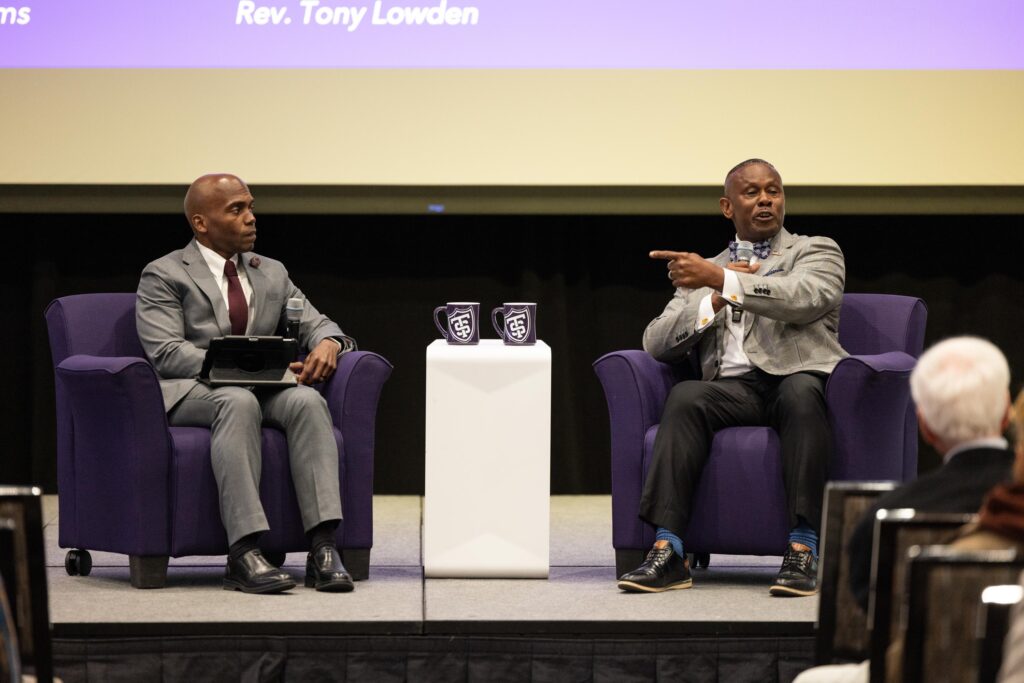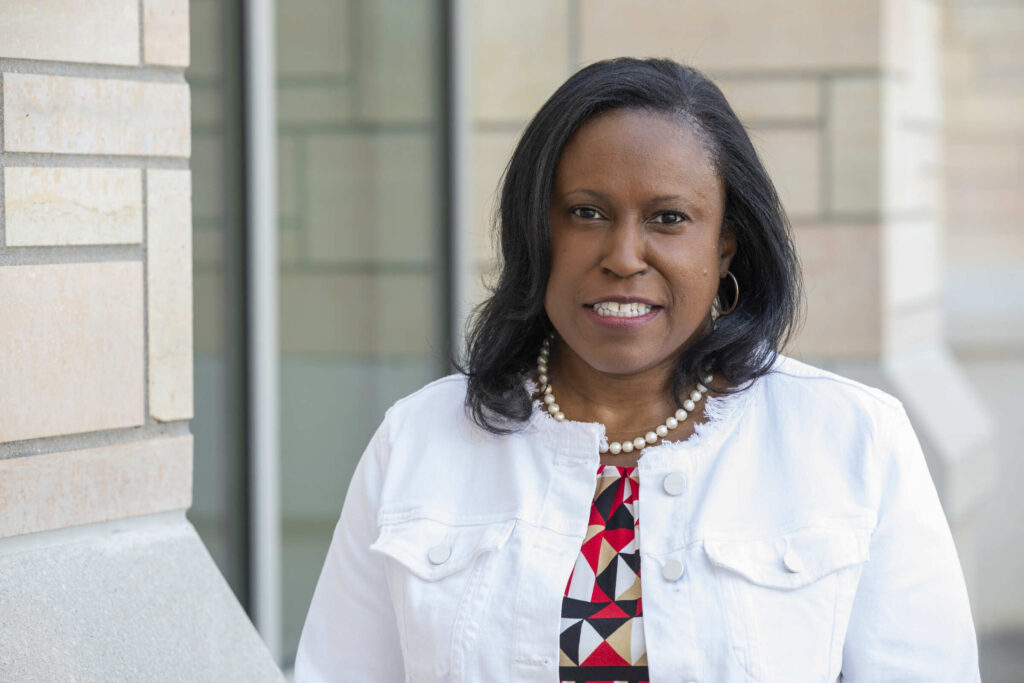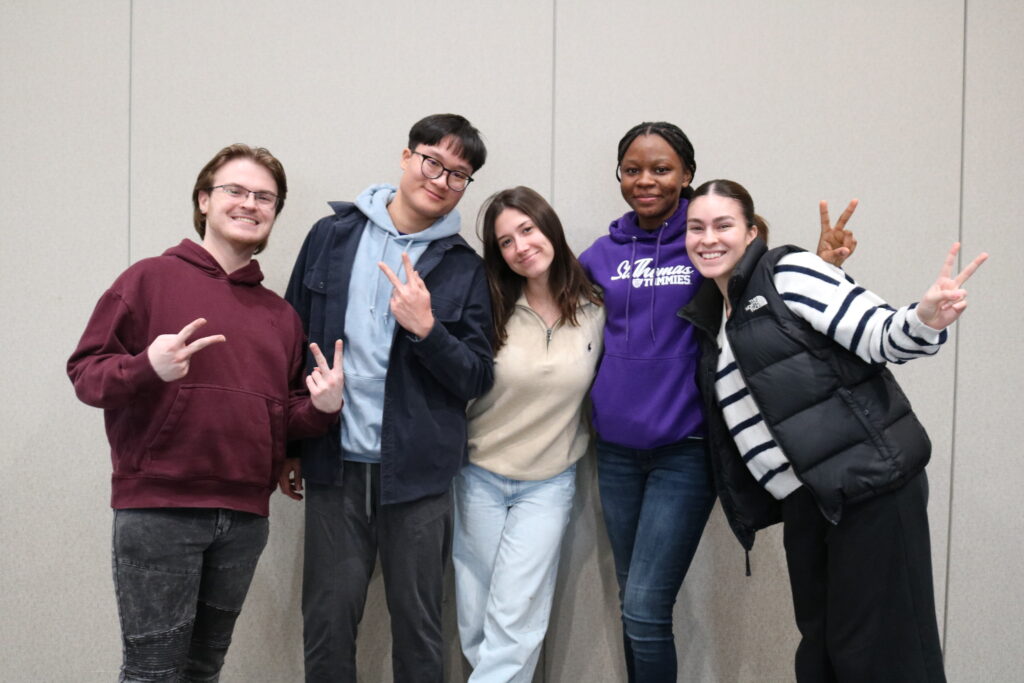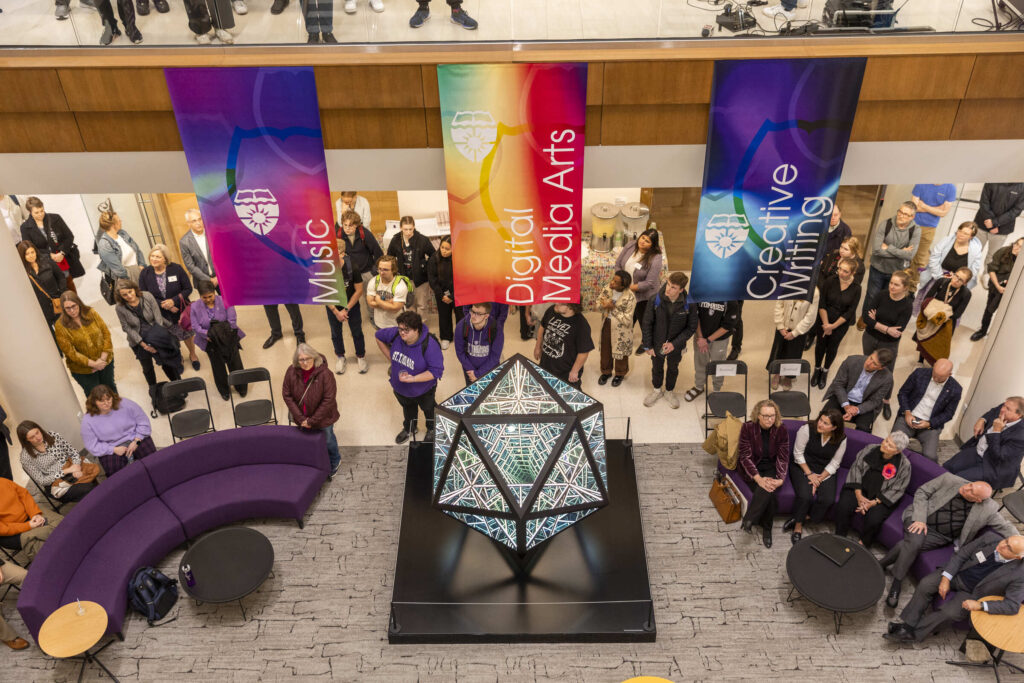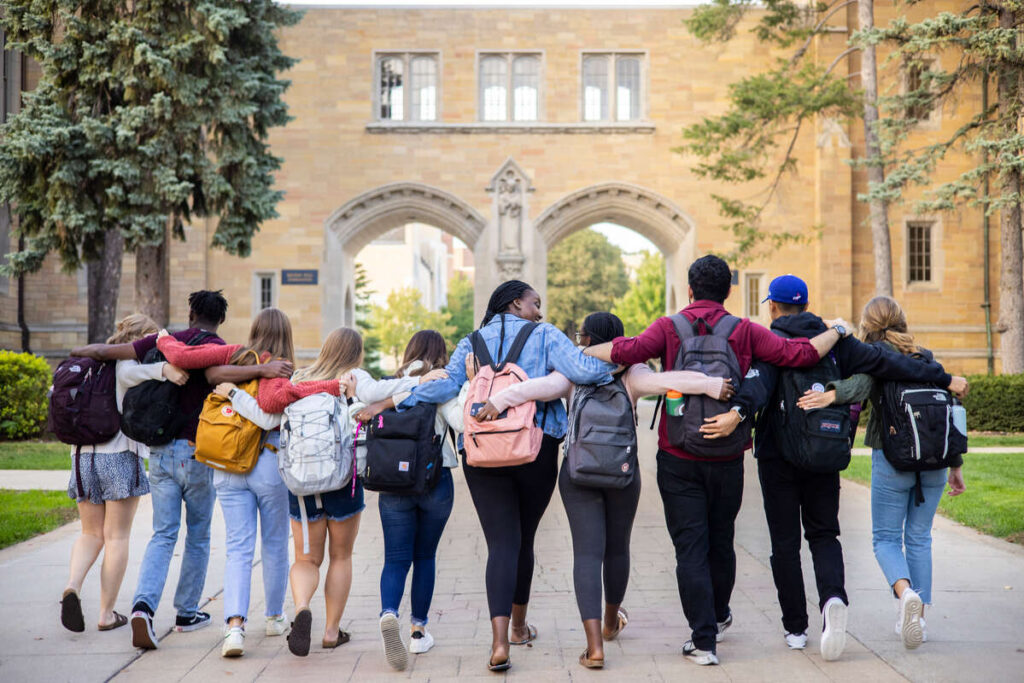Part pool party, part swim class, this was by no means your average campus lecture. No podium or auditorium in sight, attendees were invited to jump right into the pool at the Anderson Athletic and Recreation Complex aquatic center.
Each month, the Luann Dummer Center for Women at the University of St. Thomas brings a community speaker to campus as part of its Making Waves program. Its recent event took those “waves” quite literally as they hosted the Subversive Sirens on April 25. The group is a Minnesota-based synchronized swimming team committed to Black liberation, equity in swimming, radical body acceptance and queer visibility.
After a performance of the group’s latest award-winning routine, the Sirens invited audience members to join them in the pool for a special lesson in synchronized swimming techniques and a little exercise.
“Our theme for this year’s programming at the Luann Dummer Center for Women is joy, and central to the mission of the Subversive Sirens is joy,” said current LDCW Director Shaherzad Ahmadi, who is also an associate professor of history at St. Thomas. “Through their performance and talk, they propelled a discussion forward about equity in the aquatic arts as well as the intersections of political activism and athletics.”
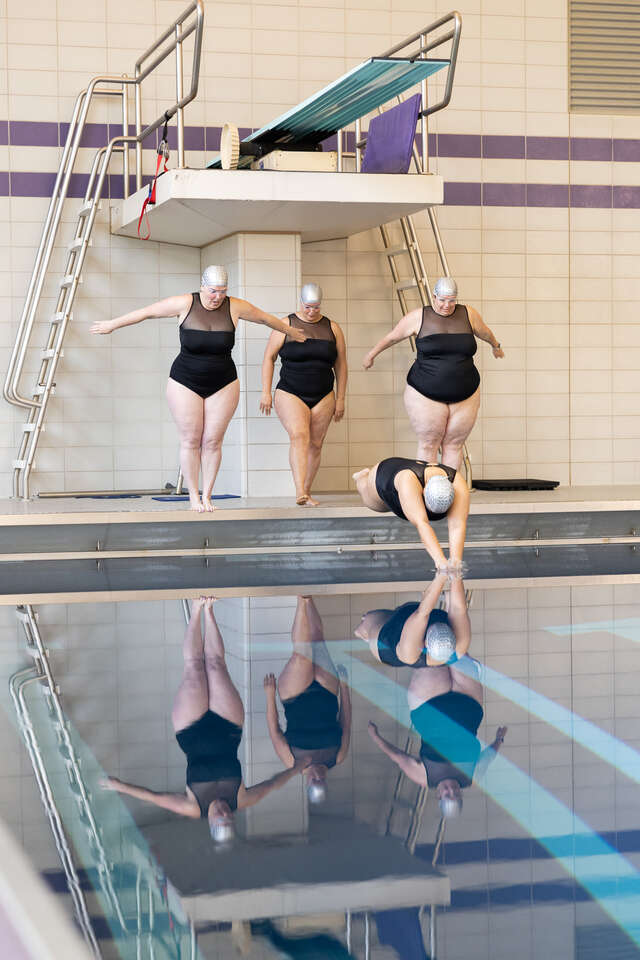
Subversive Sirens made their competitive debut at the Gay Games in 2018, winning a gold medal for their free combo routine. Since then, they’ve won awards all over the globe. But for team members, it’s not the hardware that keeps them swimming together, it’s the message they’re spreading with each performance.
“I certainly do it for my own healing, my own joy, my own liberation … but it's infectious,” co-founder Signe Harriday said. “When we have the opportunity to share synchro with other people, I hope that it gives them a spark of joy and will serve as a reminder that they can find joy in whatever space is right for them.”
Among the Siren’s members: St. Thomas psychology Professor Dr. Roxanne Prichard, who believes joyful movement plays an important role in moving through life.
“So often, girls and women are conditioned to focus on what their bodies shouldn’t be – too thick here, too squishy there, not curving in the acceptable ways – and not how to feel our body as is joyfully moving through the world,” Prichard said. “My joyful movement happens to include swimming upside down and backwards.”
The group says that advocacy comes in many forms, and that liberation practices like theirs play an important role.
“These kinds of embodied experiences are necessary for folks who are doing really hard work to be able to build resilience through their bodies,” Tana Hargest, another member, said. “To have an experience that really is just about what your body can do in space with others is really important and key to unlocking other pathways to liberation.”


